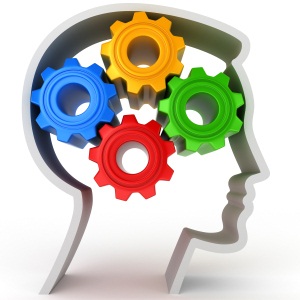
Try "neurobics," one of several new workouts for the brain. Although some medical experts dismiss the trend as "neuro babble," several companies espouse a programme of mental exercises - brain teasers, visualisations and even such activities as reading a book upside down - to enhance job performance, intelligence and creativity.
The theory is that you can get your brain into shape the same way that you do aerobics to tone muscles and strengthen the cardiovascular system.
"The idea is to do routine activities in novel ways that use all five senses," said Lawrence Katz, a professor of neurobiology at Duke University Medical School in Durham, N.C., who coined the term "neurobics." "The goal is to activate the brain's own biochemical pathways and to bring new pathways online that can help to strengthen or preserve brain circuits."
Katz is co-author of the 1999 book "Keep Your Brain Alive." Rather than improve one specific skill, such as memorising names, "we want to improve brain agility and flexibility," he said.
Challenge your brain
His suggested activities include: If you're right-handed, brush your teeth with your left hand. Take a new route to work. Choose your clothes based on sense of touch rather than sight.
"During our day-to-day lives, we use very few of the pathways, or we use the same ones over and over again," Katz said.
Katz's "neurobics" isn't the only mental workout out there. There's the Cambridge, Mass.-based company "Brainergy," whose slogan is: "Because your gray matter matters." Another is "The Mind Gym," a London-based company that offers 70 different workouts, including sessions on learning how to effectively say "No" and how to exude presence, or "gravitas," when you walk into a room.
In the gravitas workout, participants visualise their bodies taking up a larger and larger space, until their influence extends throughout the room.
Octavius Black, managing director of The Mind Gym, first planned to hold sessions in fitness clubs, but corporations were more interested, he said. Some 8 000 employees of computer, accounting, banking, cosmetic and oil companies England have taken part in Mind Gym workouts this year, he said.
Unlike some mental workouts, The Mind Gym workouts do not claim to increase IQ, Black said. Instead, the idea is to help people's mind function as efficiently and effectively as possible - and to understand how others think - so that they get the most out of their work and personal lives as possible, Black said.
He compared The Mind Gym to working out at a traditional fitness club.
"If you go to the gym, you're not necessarily going to go to the Olympics." Black said. "If you do The Mind Gym, you're not going to become Albert Einstein. But you can learn about the bits of your mind you want to improve, to be able to use your mind better than before."
Do we suffer from brain neglect?
But can neurobics and other such mental workouts really do any good? Are we a nation suffering from brain neglect?
There are no clinical studies that specifically test the effectiveness of activities like neurobics. However, research has shown that people with high levels of intelligence and education tend to have lower rates of Alzheimer's disease and age-related mental decline.
"There is something to it," said Michael Shermer, publisher of Skeptic magazine. "Neurons maintain new connections or grow new ones based on use."
However, Shermer added, it's unlikely any type of mental exercise is going to significantly boost IQ. Furthermore, nothing says that any of the activities done during mental workouts will transfer into anything else helpful.
For example, say you practice brushing your teeth with your "other" hand. You may get good at it, but you're not necessarily going to become ambidextrous. Taking a new route to work doesn't mean you're going to feel mentally sharper.
"The claims often far outstrip what they're able to prove," Shermer said.
Katz acknowledged that learning to play the violin or a foreign language would probably do more for the brain than any of his exercises. The problem is most adults don't have the time or inclination to learn a musical instrument or language.
"(Brain exercises) are the equivalent of taking the stairs instead of the elevator," Katz said. "It's not going to turn you into a long-distance runner, but it will provide some benefit. It's the same with brain exercises. Doing these small things is better than doing nothing or plopping yourself in front of the TV."
(- HealthDay, updated 12 March 2004)
Related Articles
Post a question to Cybershrink.
Try these brain exercises




 Publications
Publications
 Partners
Partners









